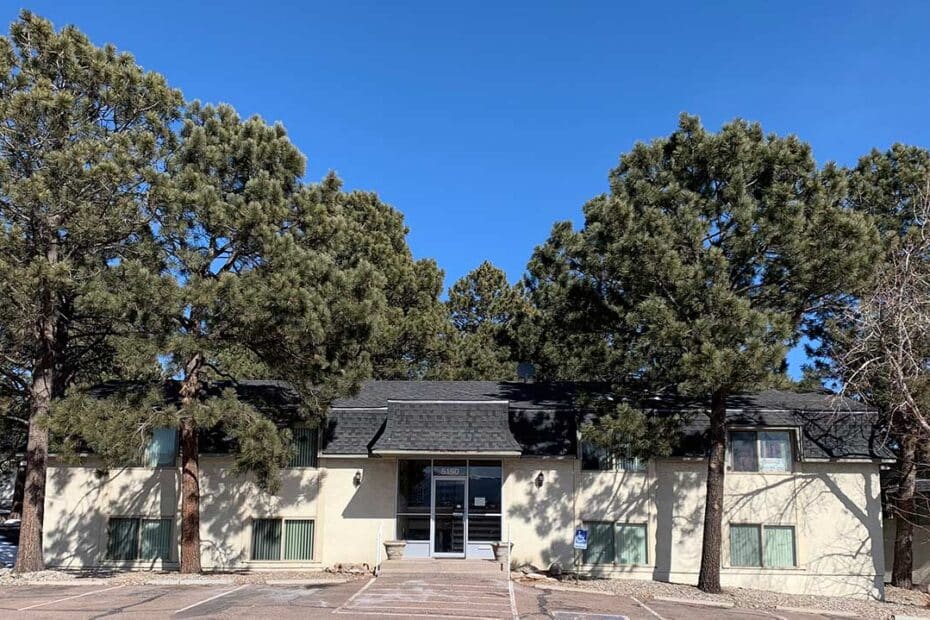The differences between a commercial real estate agent and a residential real estate agent are exactly as you would expect. The main difference is the agent’s client base. Commercial real estate agents focus on the buying, selling, and leasing of business properties, for example, storefronts, warehouses, shopping malls, office buildings, and other commercial properties. Residential real estate agents focus on the buying, selling, and leasing of properties for personal use like single family homes, condominiums, townhouses and apartments. In Colorado, the licensing requirements for commercial real estate agents and residential real estate agents are the same.

Even though the real estate agent license in Colorado is the same for residential and commercial, it is rare for a real estate agent to work in both markets. The main reason is that Colorado regulations require an agent to be proficient and experienced in their area of focus. My background is a bit different than most other real estate agents. I break this mold because I have built experience and knowledge in both of these fields. I developed my residential knowledge by spending years working with another real estate agent specializing in residential foreclosure sales and fix-and-flips. I also was able to build experience in the commercial industry before activating my current Colorado license, by working for a company that specializes in the leasing and selling of office space, retail centers, and storefronts. I have the flexibility of working in both sectors because I have been able to gain knowledge and experience in both industries.

Most of us as real estate agents focus on either residential or commercial real estate because we receive training in one specialty when we enter into a career in real estate. Our clients from that industry refer us to other clients, giving us more business of the same type. This leads to most real estate agents developing skills and expertise in either residential or commercial, but rarely both.
What Does a Commercial Real Estate Agent Do?
A commercial real estate agent assists in the sale, leasing, and management of commercial properties. A real estate agent is an expert in their field that works to negotiate for their client. Our job as commercial real estate agents is to be an expert, to advise our clients on the best course of action for their business as it relates to property, and to negotiate in the best interest of our client. This means that a commercial real estate agent has to be familiar with all of the factors that would be relevant to a business owner including zoning, taxes, average foot/street traffic, NNN, cap rates and other market data. We take all of these factors into consideration when deciding whether or not to recommend a property to a client. Since most people are more familiar with residential real estate, the equivalent for a residential real estate agent might be knowing the facts about homeowner associations, local school districts, proximity to restaurants and shopping malls, and what the local nightlife is like. It is also important for us, as professional real estate agents, to be knowledgeable and work with trusted professionals in the lending industry.
How Do You Become a Commercial Real Estate Agent?
In order to become a commercial real estate agent, you must first complete 168 hours of pre-licensing education. This course allows real estate agents to become familiar with real estate laws, contract laws, trusts, common real estate practices, and other relevant practical applications. Alternatively, you can also get a degree in real estate from an accredited college or university. There are different requirements if you’ve held a license in the past or have practiced real estate in a different jurisdiction. If you’re interested in those other situations, you can get more information on colorado license requirements here.
After completing the educational component you then need to pass two portions of the Colorado Real Estate Broker License exam. One exam consists of Colorado-specific questions and the other exam consists of national questions. After passing the National portion of the exam and the Colorado State portion of the exam, you’re almost ready to submit an application for a license. Before you can submit your application you need to complete a background check, which includes submitting your fingerprints to the Colorado Bureau of Investigation where they check FBI and CBI records to see if you have any criminal history. You will also need to decide and interview for which company you will be working for, and who will be your supervising broker. You must also obtain an Errors and Omissions (E&O) insurance policy. Once you’ve completed all those steps you’re finally ready to apply for your real estate broker license. It’s also important to know that real estate agents must continue to meet the education requirements to keep their license active. A certain amount of hours in approved courses are required for continuing education.
How Are Commercial Real Estate Agents Paid?
Commercial real estate agents are paid a commission as a percentage of the sale. The percent can differ depending on the size of the transaction or even the negotiation. The seller or landlord is responsible for paying the commission. So if you are a buyer or renter, it doesn’t cost you anything for a real estate agent to represent you. The commission percentage is negotiated with the seller/landlord and listing agent, and is written in the listing contract. If a real estate agent is working on a lease rather than a sale, it is possible that the commission would be a flat fee instead of a percentage. There may be other fees associated with the sale of the property like inspection fees, survey fees, escrow payments, etc… None of these fees go to the real estate agent. The only compensation an agent will receive is the commission percentage or the flat commission fee.
Conclusion
The main difference between a residential real estate agent and a commercial real estate agent is experience and knowledge. Both types of real estate agents are charged with finding their clients the best properties for their needs or finding the right buyer for the right price. The skill-sets needed for the different industries are the main difference. These skill-sets allow the real estate agent to be an expert in a chosen focus area. With this expertise, we are able to assist you in the factors most important to you, and give you the professional advice you need to make an informed decision. We want to be your expert! Let us work for you.

